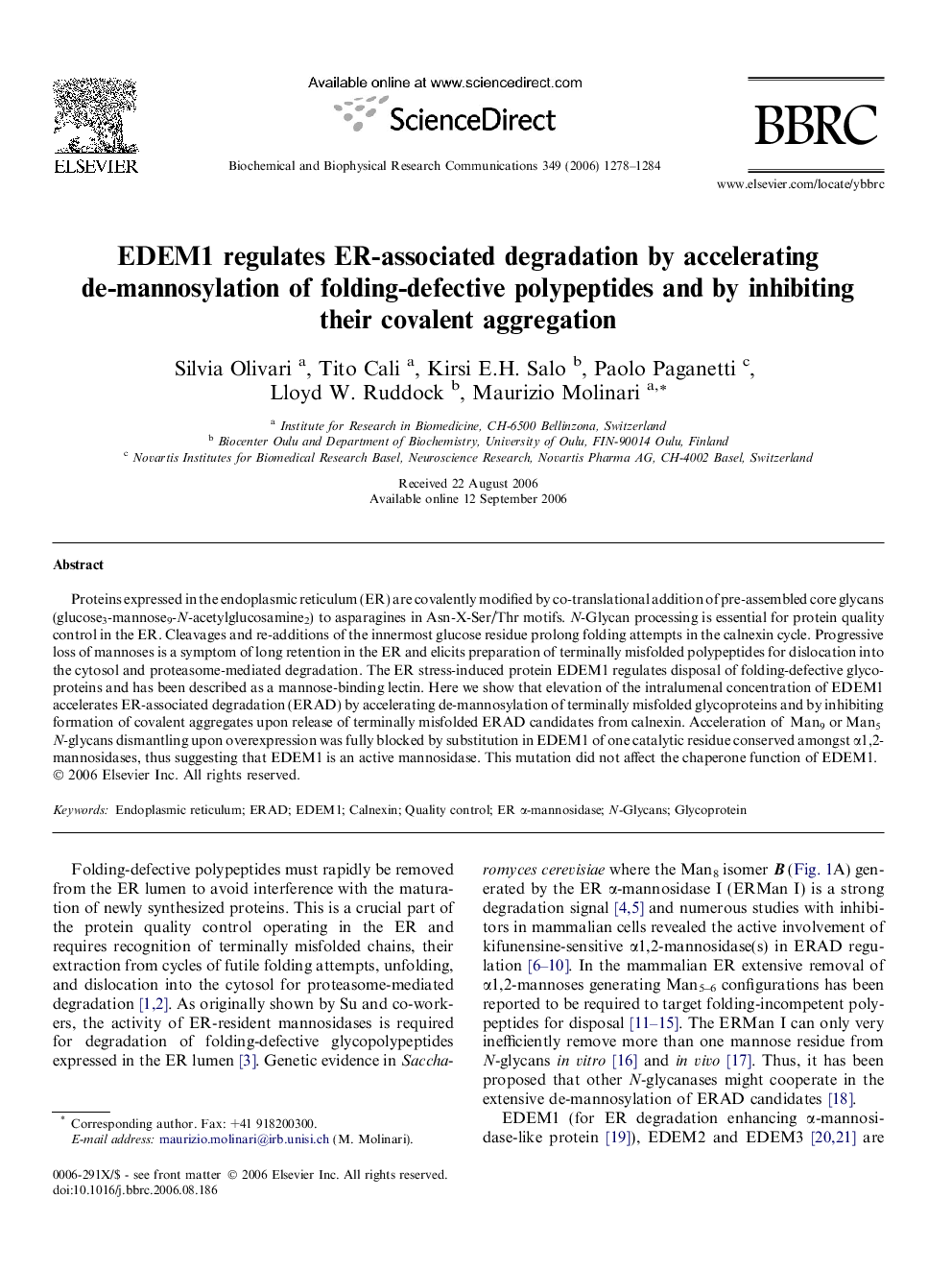| Article ID | Journal | Published Year | Pages | File Type |
|---|---|---|---|---|
| 1938977 | Biochemical and Biophysical Research Communications | 2006 | 7 Pages |
Proteins expressed in the endoplasmic reticulum (ER) are covalently modified by co-translational addition of pre-assembled core glycans (glucose3-mannose9-N-acetylglucosamine2) to asparagines in Asn-X-Ser/Thr motifs. N-Glycan processing is essential for protein quality control in the ER. Cleavages and re-additions of the innermost glucose residue prolong folding attempts in the calnexin cycle. Progressive loss of mannoses is a symptom of long retention in the ER and elicits preparation of terminally misfolded polypeptides for dislocation into the cytosol and proteasome-mediated degradation. The ER stress-induced protein EDEM1 regulates disposal of folding-defective glycoproteins and has been described as a mannose-binding lectin. Here we show that elevation of the intralumenal concentration of EDEM1 accelerates ER-associated degradation (ERAD) by accelerating de-mannosylation of terminally misfolded glycoproteins and by inhibiting formation of covalent aggregates upon release of terminally misfolded ERAD candidates from calnexin. Acceleration of Man9 or Man5N-glycans dismantling upon overexpression was fully blocked by substitution in EDEM1 of one catalytic residue conserved amongst α1,2-mannosidases, thus suggesting that EDEM1 is an active mannosidase. This mutation did not affect the chaperone function of EDEM1.
